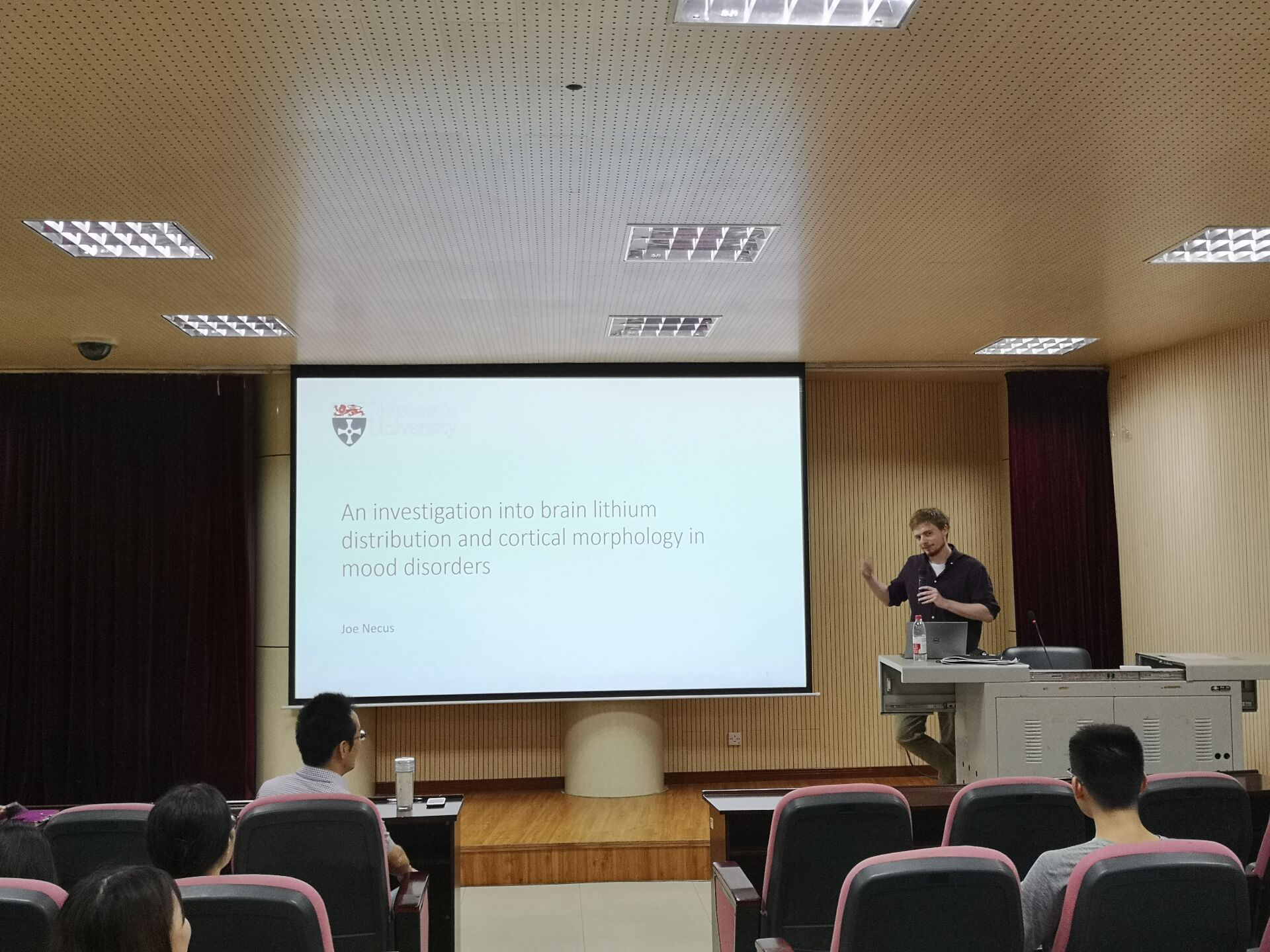
Academic and Research Communication with Dr. Joe Necus
On July 6th, 2018, Dr. Joe Necus from Newcastle University visited the faculty of psychology of Southwest University,and made a wonderful report entitled‘An investigation into brain lithium distribution and cortical morphology in mood’.

Bipolar disorder (BD) is a mental illness characterised by the experience of depressive and manic episodes, and treatment with lithium is an effective way of preventing suicide and stabilising mood in patients with bipolar disorder. Although studies have shown that lithium exhibits a wide range of biological effects ranging from the cellular level to systems level, the mechanism of action of lithium remains unknown. Moreover, whilst lithium continues to be routinely prescribed in clinical practice, not all patients benefit from taking lithium; it is estimated that approximately a third of patients exhibit an excellent response and continue to remain on lithium monotherapy long term.
Joe Necus is currently based at Newcastle University where he is investigating the relationship between lithium uptake and response in patients with bipolar disorder using a novel 7Li-MRI acquisition protocol. His background stems from experimental neuroscience under the supervision of Professor Semir Zeki at UCL, over the course of his PhD he has developed an interest in computational approaches. His general research aim is to develop methods of integrating multimodal neuroimaging data in order to guide the diagnosis, stratification, and treatment of disorders of the brain. The majority of his research experience has entailed the analysis of MRI data. He has first-hand experience with both procuring and processing functional, structural, quantitative, and diffusion MRI data. In his current work, he is integrating quantitative relaxometry data with morphological metrics derived from structural and diffusion imaging in order to try and understand the relationship between lithium use and changes in cortical morphometry.